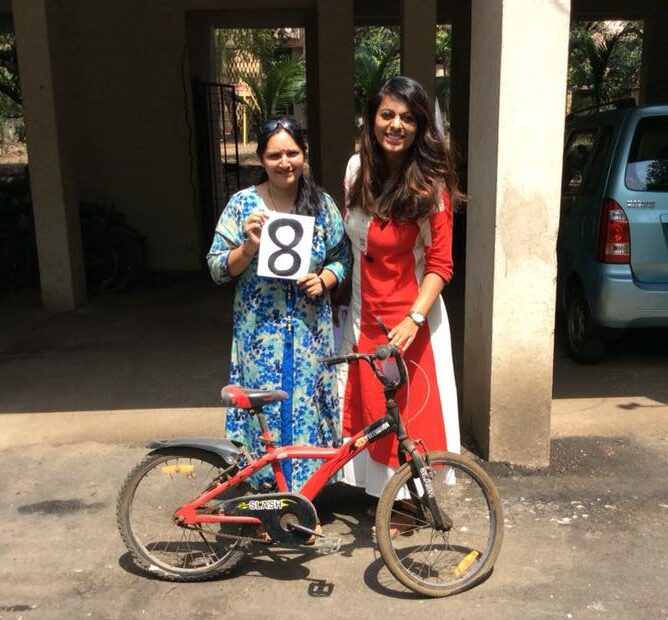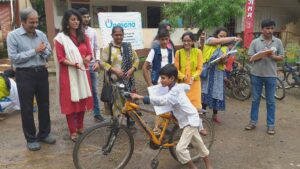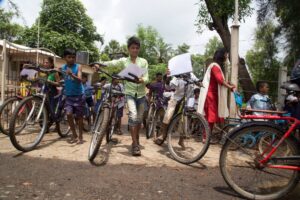Wheels for Education: Acceptable Cycles and the Upasana Society’s Commitment to Quality
Introduction
Education is a fundamental right, and ensuring access to education for all children is a noble cause. Upasana Society, a non-governmental organization (NGO), has embarked on a mission to make education more accessible to underprivileged children through its “Wheels for Education” initiative. One of the key components of this initiative is the provision of bicycles to these children, enabling them to travel to school conveniently. However, to ensure the success of this program, there are specific criteria for the cycles accepted under Wheels for Education.
- Collection Process
Upasana Society operates on a model that maximizes efficiency and minimizes logistical costs. Instead of collecting individual cycles from donors, the organization prefers to accept cycles at the society or organization level in bulk. This approach streamlines the donation process and allows for more resources to be dedicated to the cause. The cycles can either be used cycles in usable condition or new cycles. The society or organization can also donate funds to procure new or second hand cycles based on the need of students.
- Responsibility for Repairs
The quality and condition of the bicycles play a crucial role in the success of the Wheels for Education program. It is the responsibility of the societies or organizations donating bicycles to ensure that the cycles are in at least usable condition. This means that the bicycles should be safe, functional, and free from major defects.
- No Acceptance of Unusable Cycles
Upasana Society has a strict policy of not accepting cycles that are not in usable condition. This policy is in place to ensure the safety of the children who will be using these bicycles. Cycles that are rusted, severely damaged, or pose a risk to the riders will not be accepted.
- Assistance with Repairs
Recognizing that some donated bicycles may require repairs or maintenance, Upasana Society offers assistance with repairs if the respective society or organization is willing to provide funds for the repairs. This collaborative approach ensures that every cycle donated is in the best possible condition to serve its intended purpose.
- Pre-Collection Inspection
Before finalizing the collection of donated cycles, Upasana Society volunteers visit the society or organization to inspect the bicycles. This inspection is essential to assess the condition of the cycles and to tag them accordingly. The tagging process helps identify which bicycles may require repairs and ensures that the donated bicycles are distributed effectively.
- Volunteer Coordination
Throughout the process, Upasana Society volunteers work closely with the person in charge of the donating society or organization. This coordination ensures a smooth and efficient donation process, from the initial inspection to the final distribution of the bicycles to deserving students.
Conclusion
Upasana Society’s Wheels for Education initiative is making a significant impact on the lives of underprivileged children by providing them with bicycles to facilitate their access to education. The success of this program hinges on the quality and condition of the donated bicycles. By adhering to specific criteria for accepting cycles and collaborating with donating societies and organizations, Upasana Society ensures that these bicycles serve their purpose effectively and safely. It is through such meticulous attention to detail that organizations like Upasana Society make a real difference in the lives of those they aim to support.
Discover more about the “WheelsForEducation” Campaign by clicking on the link below.
Explore the WheelsForEducation Campaign




